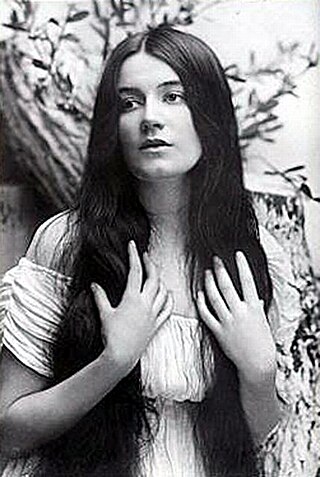Related Research Articles

Cecil Milton Hepworth was a British film director, producer and screenwriter. He was among the founders of the British film industry and continued making films into the 1920s at his Hepworth Studios. In 1923 his company Hepworth Picture Plays went into receivership.
Walton Studios, previously named Hepworth Studios and Nettlefold Studios, was a film production studio in Walton-on-Thames in Surrey, England. Hepworth was a pioneering studio in the early 20th century and released the first film adaptation of Alice's Adventures in Wonderland.

Fritzi Brunette was an American actress.
Maurice Elvey was one of the most prolific film directors in British history. He directed nearly 200 films between 1913 and 1957. During the silent film era he directed as many as twenty films per year. He also produced more than fifty films – his own as well as films directed by others.

Henry Edwards was an English actor and film director. He appeared in more than 80 films between 1915 and 1952. He also directed 67 films between 1915 and 1937.

William Clifford was an American actor and screenwriter of the silent era. He appeared in 170 films between 1910 and 1929. He also wrote for 30 films between 1913 and 1919.

James Usselman, known professionally as James Carew, was an American actor who appeared in many films, mainly in Britain. He was born in Goshen, Indiana in 1876 and began work as a clerk in a publishing firm. He began acting on stage in Chicago in 1897 in Damon and Pythias.

Gerald Ames was a British actor, film director and Olympic fencer. Ames was born in Blackheath, London in 1880 and first took up acting in 1905. He was a popular leading man in the post-First World War cinema, appearing in more than sixty films between his debut in 1914 and his retirement from the screen in 1928 in a career entirely encompassing the silent era. He was also a regular stage actor who took on many leading roles in the theatre.

Stewart Rome was an English actor who appeared in more than 150 films between 1913 and 1950.

Chrissie White was a British film actress of the silent era. She appeared in more than 180 films between 1908 and 1933. White married actor and film director Henry Edwards in 1922, and in the 1920s the two were regarded as one of Britain's most newsworthy celebrity couples. Edwards directed more than 20 of his wife's films. The couple had two children, a son and a daughter, actress Henryetta Edwards. White starred in the 1920 film The Amazing Quest of Mr. Ernest Bliss, which as of August 2010 is missing from the BFI National Archive, and is listed as one of the British Film Institute's "75 Most Wanted" lost films.

Henry Vibart was a Scottish stage and film actor, active from the 1880s until the early 1930s. He appeared in many theatrical roles in the UK and overseas, and featured in over 70 films of the silent era.
Comin' Thro the Rye is a 1923 British silent drama film directed by Cecil Hepworth and starring Alma Taylor and Ralph Forbes. The film was based on the 1875 novel of the same name by Helen Mathers. The title alludes to the Robert Burns 1782 poem "Comin' Through the Rye".
Albert Victor Bramble (1884–1963) was an English actor and film director. He began his acting career on the stage. He started acting in films in 1914 and subsequently turned to directing and producing films. He died on 17 May 1963.

Violet Hopson was an actress and producer who achieved fame on the British stage and in British silent films. She was born Elma Kate Victoria Karkeek in Port Augusta, South Australia on 16 December 1887. Violet Hopson was her stage name, while in childhood she was known as Kate or Kitty to her family.
John MacAndrews was a British actor of the silent era.
Gwynne Herbert was a British stage and film actress.
Eileen Dennes was an Irish-born actress of the silent era.

Herbert Standing was a British stage and screen actor and the patriarch of the Standing family of actors. He was the father of numerous children, many of whom had careers in theatre and cinema. Toward the end of his life, he appeared in many Hollywood silent films.
Frank Wilson (1873–?), was a British actor, writer and film director. Wilson was a prolific director during the silent era, shooting well over 200 shorts and feature films. He worked at the pioneering Hepworth Pictures in Walton Studios and later at Broadwest of Walthamstow Studios.
Blanche McIntosh or MacIntosh was a British screenwriter of the silent era. She worked for Cecil M. Hepworth's Hepworth Pictures, and was employed on films such as The American Heiress (1917).